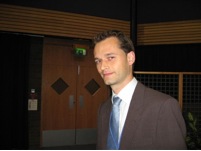When healthy people start to exercise, the brain activates powerful descending analgesic systems (pain inhibitory actions). This leads to increased pain thresholds during exercise, making it less likely that we will feel pain during, or immediately following, exercise. However, brain-orchestrated analgesia or pain inhibition is often impaired in people with chronic pain and central sensitization. This applies to exercise-induced activation of brain-orchestrated analgesia in chronic pain patients as well. Aerobic exercises like bicycling do not activate brain-orchestrated analgesia in patients with fibromyalgia, chronic whiplash associated disorders, or chronic fatigue syndrome. Remarkably, chronic low back pain patients are able to activate their brain-orchestrated analgesic systems normally during exercise.
Likewise, local muscle contractions activate generalized analgesia in healthy, pain-free humans and patients with either osteoarthritis or rheumatoid arthritis, but result in increased generalised pain sensitivity in fibromyalgia patients. In patients having local muscular pain (e.g. shoulder myalgia), exercising non-painful muscles activates generalized analgesia. However, exercising painful muscles does not activate brain-orchestrated analgesia either in the exercising muscle or at distant locations.
The precise mechanism underlying the dysfunctional response of the central analgesic systems to exercise in some patients with chronic pain remain to be revealed, and are the subject of ongoing research. If we understand it better, we might be able to treat it, which in turn should lead to more effective exercise therapy for these patients.
About Jo
 Jo Nijs holds a PhD in rehabilitation science and physiotherapy. He is a researcher and assistant professor at the Vrije Universiteit Brussel (Brussels, Belgium) and the Artesis University College Antwerp (Belgium), and he is a physiotherapist at the University Hospital Brussels. His research and clinical interests are patients with chronic unexplained pain/fatigue. He has (co-)authored more than 100 peer reviewed publications and served over 40 times as an invited speaker at national and international meetings.
Jo Nijs holds a PhD in rehabilitation science and physiotherapy. He is a researcher and assistant professor at the Vrije Universiteit Brussel (Brussels, Belgium) and the Artesis University College Antwerp (Belgium), and he is a physiotherapist at the University Hospital Brussels. His research and clinical interests are patients with chronic unexplained pain/fatigue. He has (co-)authored more than 100 peer reviewed publications and served over 40 times as an invited speaker at national and international meetings.
References
Nijs J, Kosek E, Van Oosterwijck J, & Meeus M (2012). Dysfunctional endogenous analgesia during exercise in patients with chronic pain: to exercise or not to exercise? Pain physician, 15 (3 Suppl) PMID: 22786458
Link to the full text paper: http://www.painphysicianjournal.com/2012/july/2012;15;ES205-ES213.pdf



